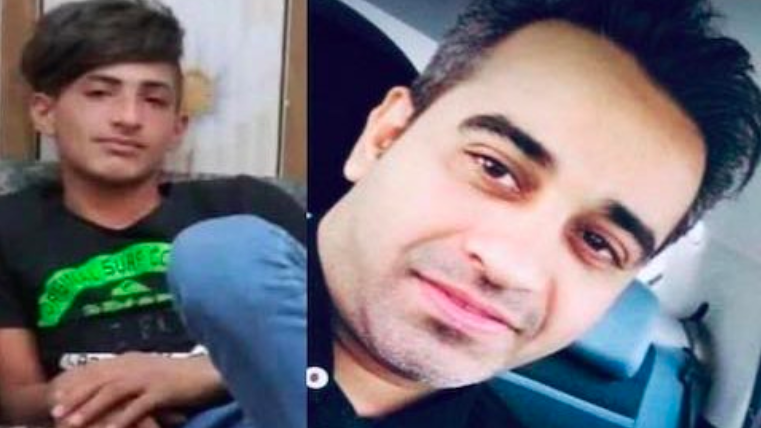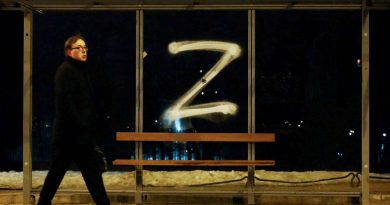Iranian racism continues taking lives: Two more young Ahwazis shot dead
by Rahim Hamid and Aaron Eitan
The UN, in general, has taken a lax attitude towards these and other abuses inside Iran.
In Iran, it is always open season on its Ahwazi population, who can be killed with sheer impunity on the flimsiest of pretexts. The latest such horrific case took place on Monday in Amidiyeh (Omidiyeh in Farsi), south-east of the regional capital of Ahwaz, after regime police attempted to forcibly confiscate the motorcycle of 17-year-old Omid Eidani, his only possession, in an apparent attempt to humiliate the boy.
When local people witnessed the officers brutally assaulting the boy for no apparent reason, they rushed to his aid and protected him from the attack, helping him to escape and being beaten themselves in the process. The teenager immediately returned to his family’s home in the impoverished Yaser neighbourhood of the city, most of whose Ahwazi residents live in desperate poverty, despite its location in an oil and gas hub whose resources account for over 95% of the mineral resources claimed by the Iranian regime.
Local Ahwazi activists reported that, after brutally dispersing the crowd who had helped him flee, police pursued him, trying to break down the door of his parents’ home and insisting they would confiscate his motorcycle. His family reported that Omid, fearing his beloved motorbike would be taken from him, rushed to the roof of the house where he gathered small pebbles and whatever he could find, throwing them at the police below. Rather than talking the unarmed teenager down or trying to reason with him, a police marksman shot him in the head, fatally injuring him. The police officers then departed, leaving his devastated family to rush him to hospital. Despite their frantic efforts, he died shortly after his arrival.
This was only the latest in a series of wantonly random killings of young Ahwazis.
On Sunday, 28 June, another Ahwazi youth, identified as Reza Torfi, was killed by multiple gunshots fired by Iranian police officers at close range while he was driving his car near the Kianabad neighbourhood in Ahwaz city. He was reportedly heading towards a neighbouring district, Daghaghleh, with witnesses reporting that he had inadvertently driven through one of the numerous – and often poorly marked – police checkpoints throughout the city. The officers at the checkpoint immediately pursued him and shot him dead, with bullets hitting his heart, kidneys and one lung; although he lived for a short time after being shot, witnesses reported that police ignored him and conferred with one another around his vehicle whilst he was dying.
The police forces justified the murder by claiming that they suspected Reza of using his vehicle to transport alcoholic beverages. No alcohol was found in the vehicle, and the stated reason for stopping him was pretextual. While Reza Torfi’s family has reportedly filed a lawsuit against law enforcement officers, regime security personnel have been pressuring the family not to talk to media and human rights organisations, which in Iran carries with it an unveiled threat of death.
These killings are commonplace, with regime police and security personnel routinely setting up poorly marked or unmarked temporary checkpoints, then targeting anyone Ahwazi who drives past them without stopping, despite their lack of notification. Police also routinely demand bribes from random motorists, confiscating their vehicles if they refuse or are unable to pay and claiming falsely that they were speeding.
Reza Torfi was himself killed less than a week after another Ahwazi man, 30-year-old Mohammed Sawari, the son of a renowned Ahwazi political activist, Kazem, who was killed by the regime whilst Mohammed was a child. Mohammed Sawari, a married father of two young daughters who lived in the city of Rofyea near the Iran-Iraq border, was shot dead by regime border forces whilst he was transporting sheep to sell to customers in Iraq. Like many other Ahwazi men denied the possibility of decent employment by the regime due to his Arab ethnicity, Mohammed had resorted to fishing in the nearby Hor Al-Azim wetlands or selling livestock such as sheep and cattle to Iraqi customers across the border.
This pattern has been documented with horrifying regularity. On 19 June 2020, Hassan Mohammed, from the town of Alsaluyeh, was shot at point-blank range whilst he was passing through a checkpoint, with sources reporting that he was on his way to visit his fiancée when he was killed. According to witnesses, the Iranian officers manning the checkpoint, who had not even instructed Hassan to stop, opened fire without warning when he walked through, killing him immediately.
On 10 June 2020, 25-year-old Majed Alboghobeish from the city of Ma’shour, died instantly when police shot him at close range without any warning from a passing car whilst he was driving on the road between Ma’shour and Khor Mousa.
These murders did not begin in 2020. On 4 September 2019, 17-year-old Ali Rashedi was shot in the head and back for driving his moped through an unmarked alleged checkpoint, with no warning. He died instantly. So too, 28-year-old Bassem Alboghobeish and Mohammad Sari were shot dead by IRGC-linked and Basiji forces in Falahieyh (Shadegan in Farsi) and Ahwaz City, respectively, both while riding motorcycles. On 11 August 2019, 19-year-old Abbas Amiri and his cousin were travelling from Ahwaz capital to Toster city when their car was fired on by Basij forces, who later claimed that the vehicle was speeding, claim witnesses denied. Abbas died as a result of severe bleeding from the gunshot wound, whilst his cousin was severely injured. On 22 June 2019, a motorcyclist identified as Hamza Saaduni was shot in the head by a police officer in Ahwaz city, dying instantly, after ignoring the officer’s order to stop, which he feared would mean a beating and extortion.
Agnes Callamard, the UN rapporteur, has abstained from commenting on this situation or pushing for an official inquiry into this systematic killing spree clearly sanctioned by Iran’s regime, which raises questions to her commitment to human rights when it does not involve fanfare and publicity related to Khashoggi, or the murderous Soleimani, whose death at the hands of the United States was a cause of joy for Ahwazis in particular. The UN, in general, has taken a lax attitude towards these and other abuses inside Iran. No resolutions have been passed holding Iran responsible for the grotesque situation in Ahwaz nor of the discrimination and oppression in general.
Irina Tsukerman, a New York-based human rights advocate, told DUSC, “As a signatory which has not ratified the Rome Treaty’ Iran has avoided the scrutiny of the ICC for persistent human rights abuses. Furthermore, despite the participation of the authorities in extrajudicial assassinations and executions, such as a series of recent murders of young Ahwazis, such as this one, Iran has escaped scrutiny by blaming such killings on unidentified perpetrators and vaguely defined factions.”
“In reality, the culture of corruption in Iran is such that people are readily identified and caught for minor infractions and dubious violations, but systematic and discriminatory crimes targeting the most vulnerable always end up as closed cases that are never resolved. Iran has created an atmosphere of lawlessness with the elites being at the top of the hierarchy of preferential treatments and Ahwazis being essentially second-class citizens with no hope for justice from the law enforcement.
“None of that is discussed in the press; instead, the narrative of separatism prevailed which distracts from the examination of systematic injustices of Ahwazi civilians, including those not involved in any kind of activism. Since 2016 until now over 20 Ahwazis were shot dead, and many were injured through these mysterious executions and their murderers were never found, nor any motive has been named.”
The free world cannot hypocritically condemn random abuses of power in some countries and ignore endemic – and racially motivated – atrocities by the Iranian regime. The very nature of the rule of law is being perverted within Iran even as it actively tries to export its totalitarian ethos by any means necessary. There is no legitimate reason for killing these boys, but unless the world is willing to look past regime propaganda and hold it to account for its crimes, then the regime is right in thinking it does not need any reason to kill Ahwazis, young or old. And that cannot be allowed to continue.
Article first published on Dur Untash Studies Center.
Rahim Hamid is an Ahwazi author, freelance journalist and human rights advocate. He tweets under @Samireza42.
Aaron Eitan Meyer is an attorney admitted to practice in New York State and before the United State Supreme Court, and a researcher and analyst. He has written extensively on lawfare, international humanitarian, and human rights law. He tweets under @Aaronemeyer.



